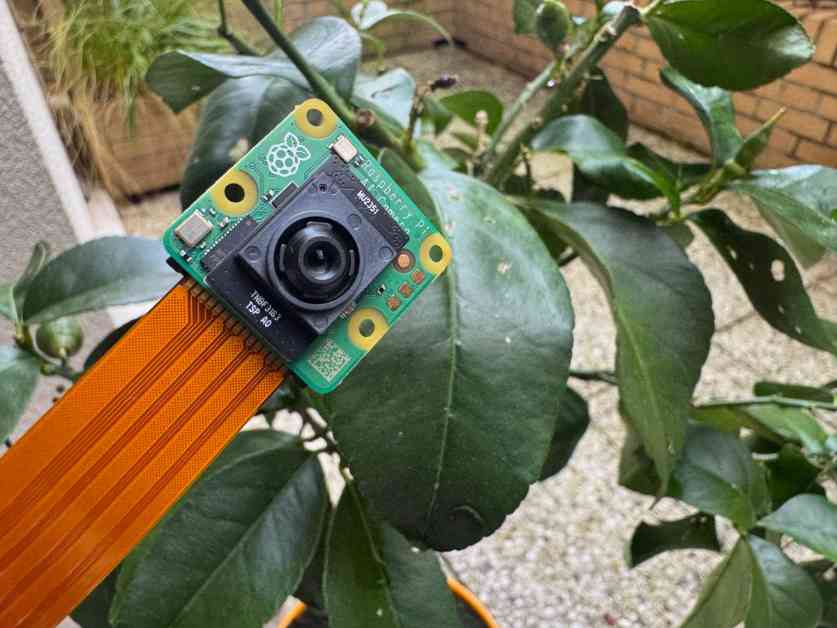Raspberry Pi AI Camera Module Revolutionizes Vision-Based AI Applications
Raspberry Pi, known for its affordable single-board computers, is set to release a groundbreaking add-on that will revolutionize vision-based AI applications. The Raspberry Pi AI Camera, equipped with on-board AI processing capabilities, is poised to unlock a wide range of use cases in various industries. Priced at $70, this new image sensor is set to disrupt the market with its innovative features and functionality.
Technical Innovation
The AI Camera is built on a Sony image sensor, the IMX500, paired with the RP2040 microcontroller chip developed by Raspberry Pi. This powerful combination allows for seamless integration of image processing and AI capabilities in a compact and cost-effective package. The RP2040 chip, known for its efficiency and affordability, aligns perfectly with Raspberry Pi’s mission to make technology accessible to all.
While the RP2040 chip may not replace high-end GPUs for complex AI inference tasks, it excels when paired with an image sensor for image capture and processing through neural network models. The on-board processing on the camera module ensures that the host Raspberry Pi is not burdened by visual data processing, allowing for smooth operation and enhanced performance.
Compatibility and Versatility
The new AI Camera module is compatible with all Raspberry Pi computers, making it a versatile and adaptable tool for a wide range of applications. Measuring the same size as the previous Camera Module 3 (25mm x 24mm), the AI Camera is slightly thicker due to the advanced optical sensor structure. It comes pre-loaded with the MobileNet-SSD model, enabling real-time object detection with precision and accuracy.
In addition to its compact size and advanced features, the AI Camera module offers seamless integration with existing Raspberry Pi devices, making it an ideal choice for both hobbyists and industrial users. Whether used for smart city sensors, traffic monitoring, or industrial automation, the AI Camera module provides a reliable and efficient solution for a variety of applications.
Industrial Applications
As Raspberry Pi continues to expand its presence in the industrial and embedded segment, the AI Camera module is expected to play a key role in driving innovation and efficiency in various industries. With companies increasingly relying on Raspberry Pi devices for their products and assembly lines, the demand for advanced modules like the AI Camera is on the rise.
Companies can leverage the AI Camera module for a wide range of applications, including smart city infrastructure, automated quality assurance, and real-time monitoring. The ability to produce computers and modules at scale, coupled with the reliability of Raspberry Pi products, makes it a preferred choice for businesses looking to streamline their operations and enhance their technological capabilities.
Future Outlook
As Raspberry Pi commits to keeping the AI Camera module in production until at least January 2028, companies can rest assured that they will have access to cutting-edge technology for years to come. With a focus on innovation, affordability, and reliability, Raspberry Pi continues to push the boundaries of what is possible in the world of AI and vision-based applications.
In conclusion, the Raspberry Pi AI Camera module represents a significant leap forward in the field of vision-based AI applications. With its advanced features, seamless integration, and versatility, this innovative add-on is set to transform the way industries approach image processing, object detection, and automation. As companies embrace the potential of AI technology, the AI Camera module offers a powerful tool for driving innovation, efficiency, and growth in a rapidly evolving digital landscape.











